Guangtai Huang
HLAT: High-quality Large Language Model Pre-trained on AWS Trainium
Apr 16, 2024
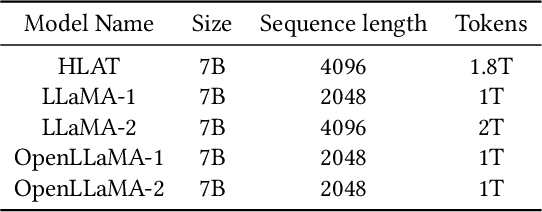
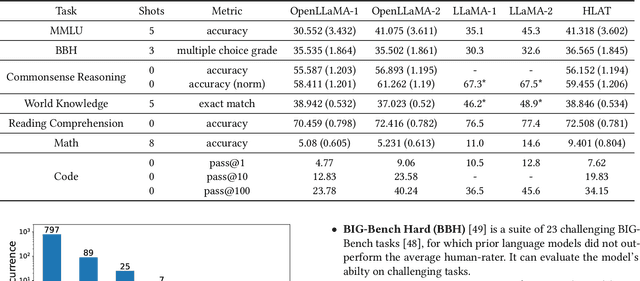

Abstract:Getting large language models (LLMs) to perform well on the downstream tasks requires pre-training over trillions of tokens. This typically demands a large number of powerful computational devices in addition to a stable distributed training framework to accelerate the training. The growing number of applications leveraging AI/ML had led to a scarcity of the expensive conventional accelerators (such as GPUs), which begs the need for the alternative specialized-accelerators that are scalable and cost-efficient. AWS Trainium is the second-generation machine learning accelerator that has been purposely built for training large deep learning models. Its corresponding instance, Amazon EC2 trn1, is an alternative to GPU instances for LLM training. However, training LLMs with billions of parameters on trn1 is challenging due to its relatively nascent software ecosystem. In this paper, we showcase HLAT: a 7 billion parameter decoder-only LLM pre-trained using trn1 instances over 1.8 trillion tokens. The performance of HLAT is benchmarked against popular open source baseline models including LLaMA and OpenLLaMA, which have been trained on NVIDIA GPUs and Google TPUs, respectively. On various evaluation tasks, we show that HLAT achieves model quality on par with the baselines. We also share the best practice of using the Neuron Distributed Training Library (NDTL), a customized distributed training library for AWS Trainium to achieve efficient training. Our work demonstrates that AWS Trainium powered by the NDTL is able to successfully pre-train state-of-the-art LLM models with high performance and cost-effectiveness.
RAF: Holistic Compilation for Deep Learning Model Training
Mar 08, 2023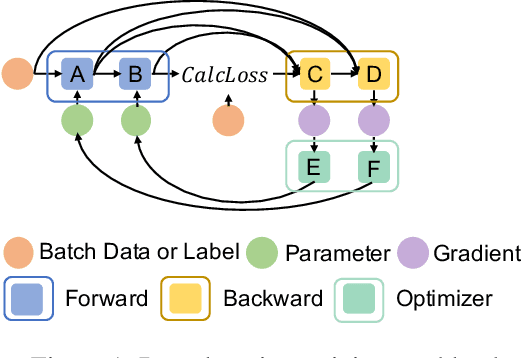
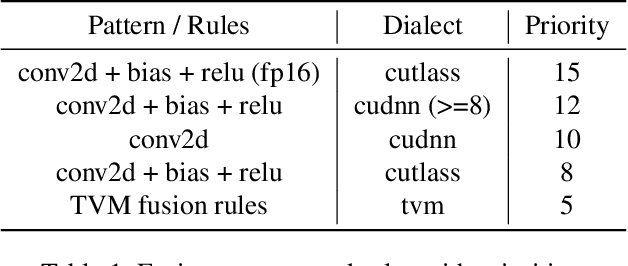
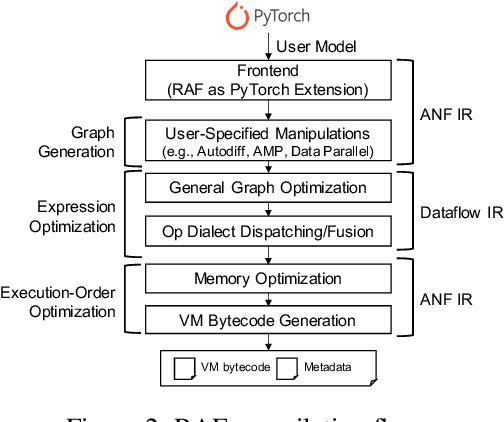

Abstract:As deep learning is pervasive in modern applications, many deep learning frameworks are presented for deep learning practitioners to develop and train DNN models rapidly. Meanwhile, as training large deep learning models becomes a trend in recent years, the training throughput and memory footprint are getting crucial. Accordingly, optimizing training workloads with compiler optimizations is inevitable and getting more and more attentions. However, existing deep learning compilers (DLCs) mainly target inference and do not incorporate holistic optimizations, such as automatic differentiation and automatic mixed precision, in training workloads. In this paper, we present RAF, a deep learning compiler for training. Unlike existing DLCs, RAF accepts a forward model and in-house generates a training graph. Accordingly, RAF is able to systematically consolidate graph optimizations for performance, memory and distributed training. In addition, to catch up to the state-of-the-art performance with hand-crafted kernel libraries as well as tensor compilers, RAF proposes an operator dialect mechanism to seamlessly integrate all possible kernel implementations. We demonstrate that by in-house training graph generation and operator dialect mechanism, we are able to perform holistic optimizations and achieve either better training throughput or larger batch size against PyTorch (eager and torchscript mode), XLA, and DeepSpeed for popular transformer models on GPUs.
 Add to Chrome
Add to Chrome Add to Firefox
Add to Firefox Add to Edge
Add to Edge